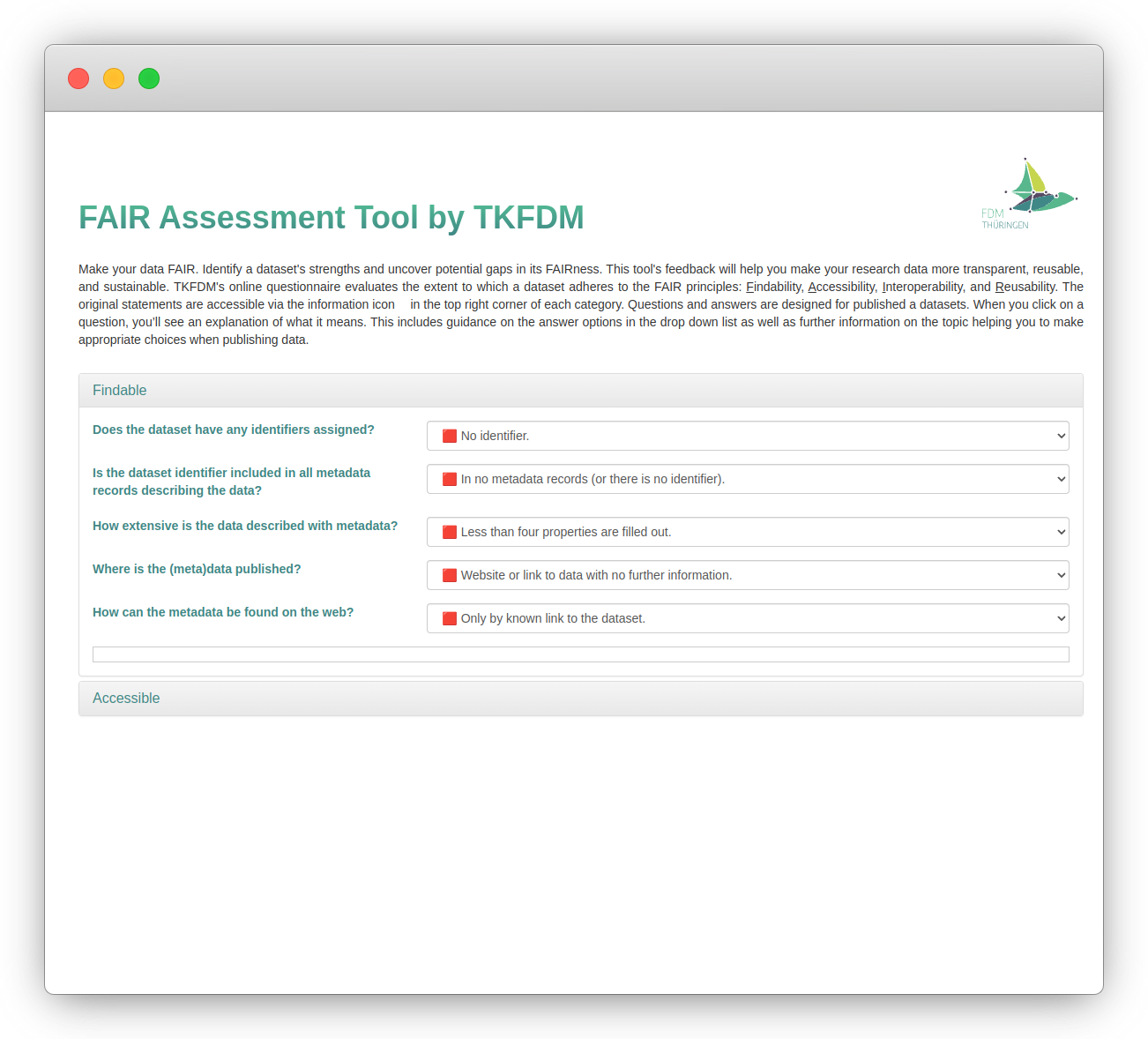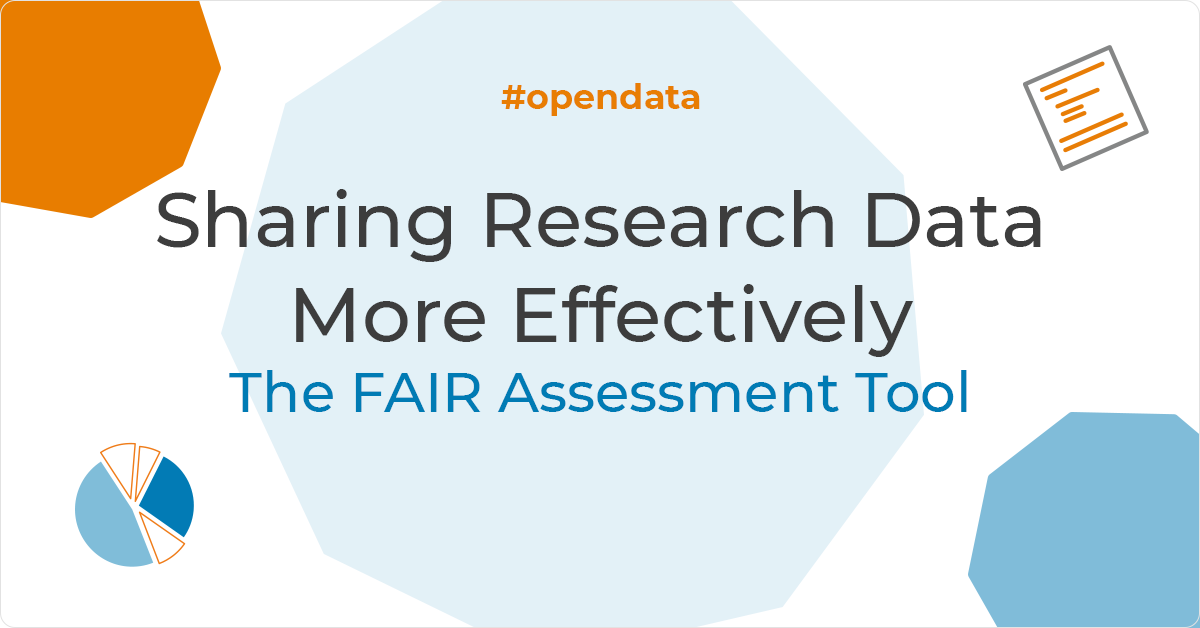The FAIR Assessment Tool is a new tool that has recently been introduced to help assess and improve the FAIRness of published data. This allows you to expand your important know-how for publishing data sets in order to benefit from the advantages of FAIR data, such as greater visibility and impact for your research.
The FAIR Assessment Tool helps you make your research data FAIR and publish it. FAIR refers to the Findability, Accessibility, Interoperability and Reusability of a dataset. Designing your research data management in accordance with the FAIR principles can, among other things, increase the visibility and impact of your research, improve its reproducibility and lead to more citations.
Self-assessment tool helps with optimisation
The FAIR Assessment Tool provides suggestions for improving datasets based on an online self-assessment questionnaire. It uses this self-assessment to evaluate the FAIRness of a dataset.
The free open-source tool was developed by the Thuringian Competence Centre for Research Data Management based on the ARDC FAIR Data Self Assessment Tool.

Evaluation of published datasets
The tool helps you to review a dataset that has already been published. To do this, it asks questions that are divided into four categories: findability, accessibility, interoperability and reusability. There are three to five questions per category.
Based on your answers, the tool calculates a total FAIR score. This is the average of the scores in the four main categories: findability, accessibility, interoperability and reusability. For each individual answer, the points awarded are visually represented using a traffic light system. You can export your answers and results to a downloadable report. You can then use the results to optimise this or other data sets.
Additional tools for checking the FAIRness of data
The FAIR Assessment Tool is not the only tool that can be used to check and optimise the FAIRness of research data sets. Other tools, which can also be found in the Open Economics Guide's tool collection, are described in this article. These include the ARDC FAIR Data Self-Assessment Tool, FAIR-Aware and FAIRsharing.
If you want to know more about FAIR
Find out, for example, how to make your data FAIR and what you need to bear in mind, how to find a data repository that is based on the FAIR principles and use the checklist to find a FAIR repository. By the way, the FAIR principles can also be applied for research software.
Tip: Go directly to the FAIR Assessment Tool.
